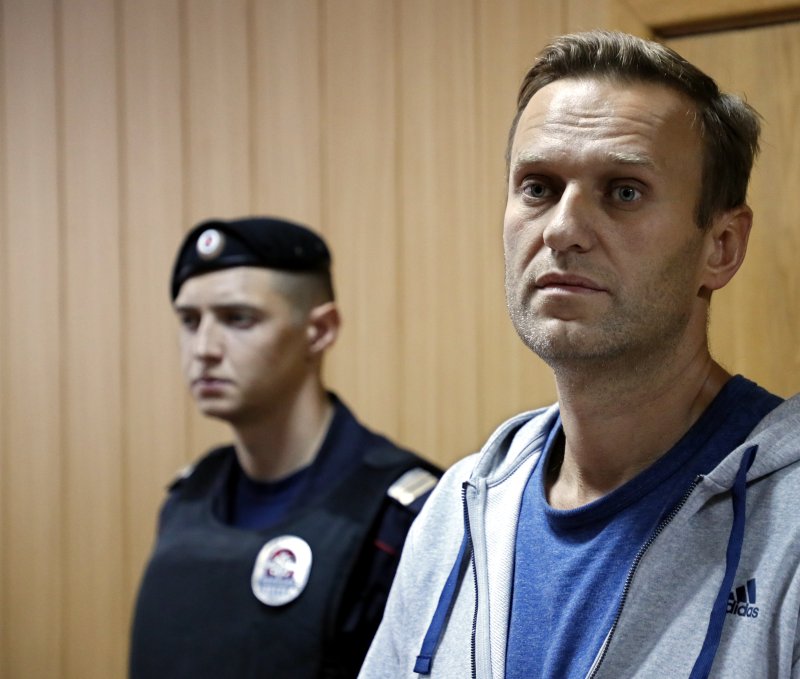The members of the Group of Seven nations on Tuesday condemned the arrest earlier this month of Russian opposition leader Alexei Navalny. File Photo by Yuri Kochetkov/EPA-EFE
Jan. 26 (UPI) -- The foreign ministers of the Group of Seven nations on Tuesday condemned Russia's imprisonment of opposition leader Alexei Navalny, describing it as a "politically motivated arrest and detention."
In a statement, the G7 nations said it is "deplorable" that Navalny is being detained on accusations of violating the terms of a suspended 2014 prison sentence, a conviction the European Court of Human Rights ruled in 2017 as arbitrary and unreasonable.
"We the G7 Foreign Ministers call upon the Russian authorities for Mr. Navalny's immediate and unconditional release," the statement said. "Russia is bound by its national and international obligations to respect and ensure human rights."
The G7 members are Canada, France, Germany, Italy, Japan, Britain and the United States as well as the European Union.
Navalny, 44, was arrested Jan. 17 upon landing at Sheremetyevo airport. The Kremlin critic had returned from Germany where he was being treated for Novichok poisoning, a Soviet-era nerve agent used against former spy Sergei Skripal and his daughter in 2018.
Navalny had sought treatment in the European nation after being poisoned on a flight from Tomsk to Moscow in August.
Russia has denied being behind the assassination attempt.
Following Navalny's most recent arrest, protests of tens of thousands of people erupted across Russia over the weekend. Russian police said the protests were not authorized.
Human Rights Watch citing data from OVD-Info, a Russian human rights group, said in a statement that more than 3,700 people were arrested on Saturday, the largest number of arrests in a single day.
Amnesty International said Navalny's arrest is "further evidence that Russian authorities are seeking to silence him."
"His detention only highlights the need to investigate his allegations that he was poisoned by state agents acting on orders from the highest levels," Natalia Zviagina, Amnesty International's Moscow Office director, said in a statement following his arrest.
The G7 nations said Tuesday they were "deeply concerned" about the thousands of protesters and journalists arrested and called for the release of "those detained arbitrarily for exercising their right of peaceful assembly."
"The violent suppression by police forces of the right of individuals to express their opinion is unacceptable," the nations said. "These events confirm a continuous negative pattern of shrinking space for the opposition, civil society, human rights defenders and independent voices in Russia."
They also reiterated their condemnation of Navalny's poisoning, urging Russian authorities to investigate and explain how such a chemical nerve agent was used on Russian soil "in the light of Russia's obligations under the Chemical Weapons Convention."
"We will continue to monitor closely Russia's response to the international calls for the immediate release of Mr. Navalny and any protesters and journalists who have been detained arbitrarily, as well as a criminal investigation into Mr. Navalny's poisoning," the countries said. "We remain strongly committed to the Chemical Weapons Convention and to our support for democracy, the rule of law and human rights in Russia as well as to bolstering our support to Russian civil society."
The statement from the G7 nations was issued the same day U.S. President Joe Biden spoke with Putin via telephone. A readout of the call from the White House said Biden raised the issue of Navalny's poisoning.















